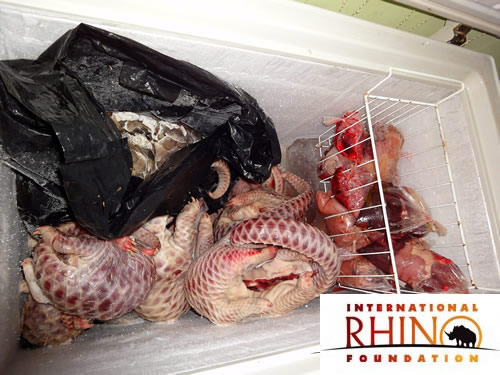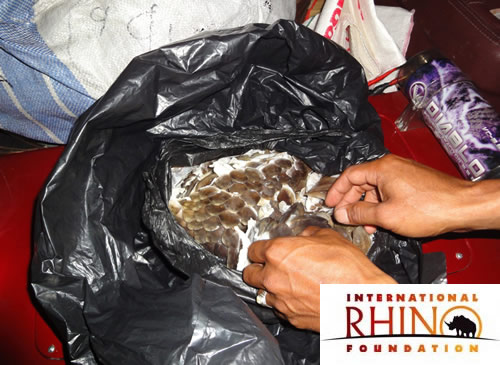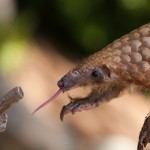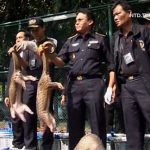
Thanks to the efforts of Rhino Protection Units (RPUs) in Bukit Barisan Selatan National Park, members of a known pangolin trafficking syndicate have been apprehended.
In August 2012, RPUs and park rangers acting on an informant tip-off nabbed an armed suspect in a village just outside Bukit Barisan Selatan National Park. The suspect was carrying 14 dead pangolins, 5 kg of pangolin flesh, and 1.5 kg of pangolin skins in his vehicle. He was also in possession of heroin and an automatic weapon. Uga Yogaswara, from the RPUs that patrol Bukit Barisan Selatan National Park, describes the risky mission:
At 2:00 am there was no sign of the poachers, so we wondered if our informant was right. However, an hour later, a red mini-bus pulled up in front of a nearby house. Within minutes, someone came out of the house and got in the vehicle. As soon as he did, we moved in right behind. The suspect pulled a gun from his pocket, but one of the park rangers disarmed him before he could shoot me. There were 14 dead pangolins in the car, along with 5 kg of pangolin meat and another 1.5 kg of skins. We also found heroin and an automatic weapon.
Uga adds that the traffickers will be punished harshly for the possession of illegal wildlife, drugs, and weapons.

Unfortunately, pangolins are under siege due to unsubstantiated claims originating in traditional Chinese medicine. Consumers believe that there are health benefits to eating pangolin scales, flesh, and fetuses. Pangolins are usually smuggled to the huge illegal wildlife markets of China, and can also be seen on the menus of illegal wildlife restaurants in Southeast Asian countries such as Vietnam.
Learn more about the Rhino Protection Units at the International Rhino Foundation, and help support the RPUs with a 2013 Rhino Conservation Calendar.
Source: Uga Yogaswara, Rhino Protection Unit, Bukit Barisan Selatan National Park. Translated by Sectionov, Indonesian Liaison, International Rhino Foundation. Provided by Bill Konstant, International Rhino Foundation.

![Pangolin Trafficking: 2011 to August 2013 [Infographic]](https://annamiticus.com/wp-content/uploads/2013/08/PangolinsInTrade2011thruAugust2013-150x150.jpg)


![Indonesia: Pangolin Smugglers Doing Their Dirty Work [Photos]](https://annamiticus.com/wp-content/uploads/2013/10/PangolinsArrive-150x150.jpg)